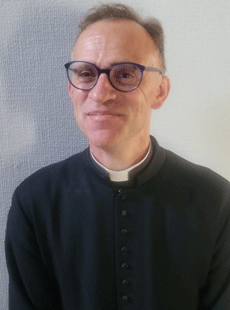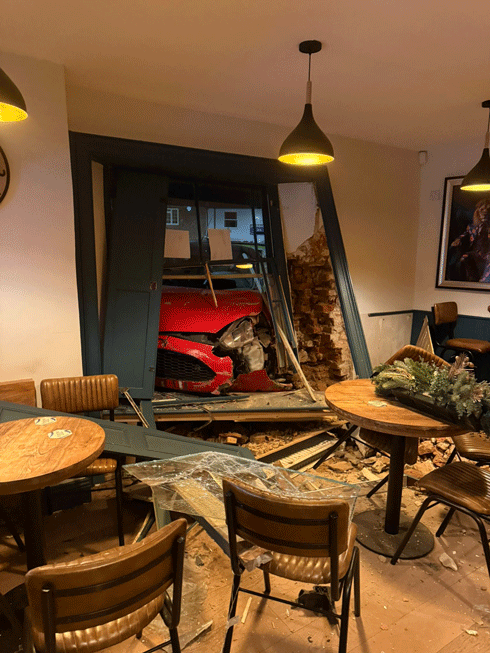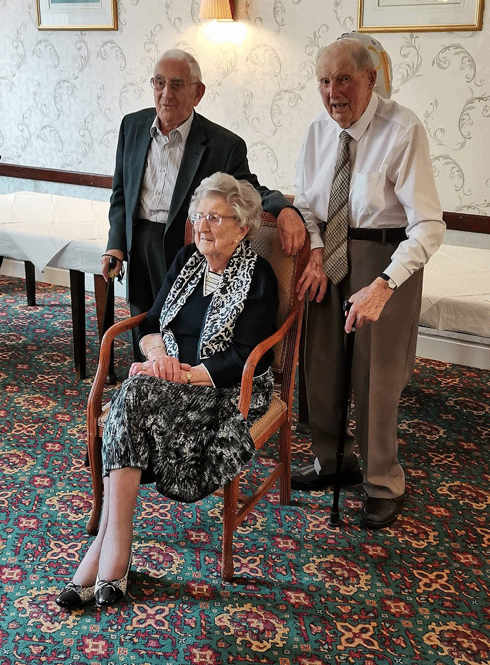
 |
 |
 |
 |
 |
 |
 |
 |
 |
 |
 |
 |
 |
 |
 |
 |
 |
 |
©Kirton News 2025
Message from Father Paul

When we think about February our minds are often drawn to two things, firstly the cold winter weather that is before us and secondly the joys that are brought to us as we celebrate St Valentine’s Day. St Valentine’s Day gives us a glimpse of hope on these long cold winter nights, a sign of love in the world around us. It is with this in mind that I write this month’s piece with a sense of gratitude, being overwhelmed with people generosity, the love you have shown to Carol and myself as you welcomed us into your community, and the support you have shown to our church. We would like to thank you all for your support over the past year, at services, coffee morning, fares and in particular at our Christmas tree festival, which was an amazing start to the celebrations of Christmas. We would also like to thank all those who sponsored us during the Christmas tree festival by showing their trees, please find a list of the sponsors at the bottom of this piece. We would also like to take this opportunity to thank the local people in the community who organised the race night we had at Kirton Leisure towards the end of January. Thanking those from Acorn Taxi’s and East Coast Access Professional Tree Services for sponsoring the evening, along with all who sponsored races, horses and riders. We all had a wonderful night at Kirton Leisure, raising much needed fun’s for the Church, thank you so much for your support. Our gratitude also goes out to Mark at the Old Kings Head; he has turned the tragedy of Christmas day when a car was driven through the wall of the Old Kings Head, into a positive. For while the repairs are being organised, the damaged wall space has been transformed into a fundraiser for the church. I like to think of the church being part of the community not separated from it, therefore the church is your church, we are here to support the community in any way we can, we can offer warm clothing, food, advice a quite moment of prayer. You do not need to be a Christian to come in, everyone is welcome, we want it to be a community space that is used by the community. Please feel free to come along, you are welcome to join us for any services, or if that is not you why not come along for a coffee morning or one or our other social events. Keep an eye on our social media sites or our web site for further details.
Sponsorship for the Christmas Tree festival and Fair with heart fell thanks goes to: Steve Robinson – Trees, The Merry Monk, Kirton Kebab and pizza, Golden Fryer, Kirton Co-op, Kirton Flower shop, Shed, Paula’s Gifts, The Black Bull, Kirton Post Office, The Barbers shop, Evelyn’s Bakery, Jhay Stores, Sylvia’s Kirton.
This wall has seen better days… but it’s helping to do some good
Following an accident on Christmas Day, staff at The Old King's Head are turning a difficult moment into something positive by raising much-needed funds for our parish church – a vital part of our community and village life.
While repairs are being organised, the damaged wall space has been transformed into a fundraiser. It has been divided into squares, and for a suggested £2 donation, supporters are invited to write a short message in a square and be entered into a prize draw once all the squares are filled.
It’s a simple way to make good use of the space, bring the community together, and support an important local cause.
Please visit The Old King's Head to take part and help support our village church.

The car that crashed into the building. C. Mark Nundy
Remembering Jack Hall
One of Kirton’s oldest and well-known residents, Jack Hall, passed away last Monday, 5 January 2026, at the age of 103.
Jack had lived his whole life in Kirton, apart from 4 years in the Army during WW2. He was born in Kirton Skeldyke, then moved to Kirton in 1949 after he was married, and then spent 51 years in his bungalow on Horseshoe Lane.
He moved to a care home in Melton Mowbray in July 2025, to be closer to his family. Unfortunately his health deteriorated gradually, and then rapidly during the final months of his life, and he died peacefully.
I’m sure that there are many people in Kirton with stories about Jack. He played football for Kirton Town in the early 1950s, and was one of the founders of the Graves Park Social Club. Kirton News sends its condolences to Jack’s family.

Citizens Advice relating
to Power of Attorney
A friend has suddenly fallen ill, which has made me think about getting my affairs in order. I’ve heard of setting up a lasting power of attorney, but I don’t really know where to begin, or if I really need to, as I’m not very old.
The first thing to know is that anyone can make a lasting power of attorney; it's not something purely for older people to consider.
Appointing a lasting power of attorney (LPA) means nominating someone such as a trusted friend or relative to act on your behalf and manage your finances, care or medical treatment, if you ever lose mental capacity. This could be because you're diagnosed with a health condition that prevents you from doing so, or something happens to you, such as an accident.
The kinds of illness which might prevent you from making decisions for yourself include: dementia, mental health problems, a brain injury, alcohol or drug misuse or the side-effects of medical treatment. Setting up an LPA doesn’t mean you’re expecting anything to happen, it’s something you might want to do in case something happens in the future.
There are two types of LPA, property and financial affairs and health and welfare. You don't have to make both types at the same time but you must make an LPA while you are still capable of making decisions for yourself. This is called having mental capacity. Both types must be registered before they can be used and you should choose who manages your affairs for you, if you’re no longer able to, very carefully.
A property and financial affairs LPA gives someone the authority to deal with and make decisions about things like buying or selling property, bank, building society and other financial accounts, welfare benefits and debts. You can give someone power of attorney to deal with all of those affairs, or only certain things. If you want to make an LPA which only deals with certain matters, you should make sure that it’s drawn up very carefully.
A health and welfare LPA gives someone the authority to deal with and make decisions about things like where you live, your day-to-day care, and your healthcare treatment - either for all aspects of your personal welfare, or only certain things. It's not possible to use a health and welfare LPA until the person who made it has lost their mental capacity.










